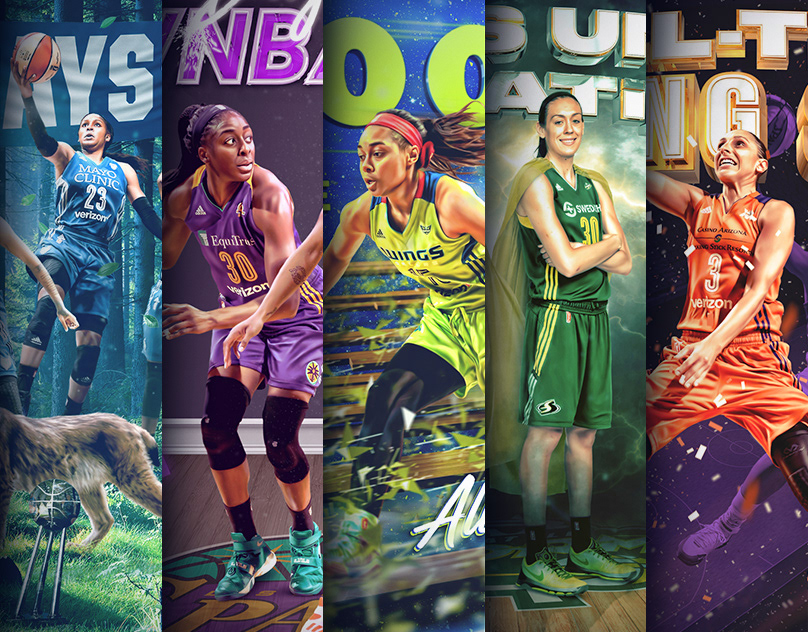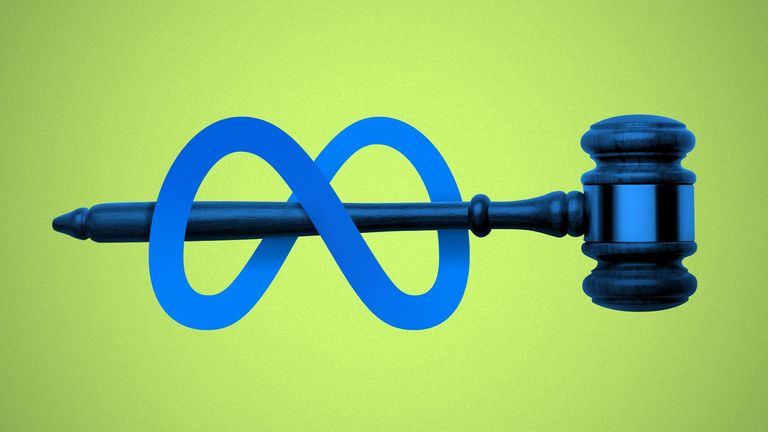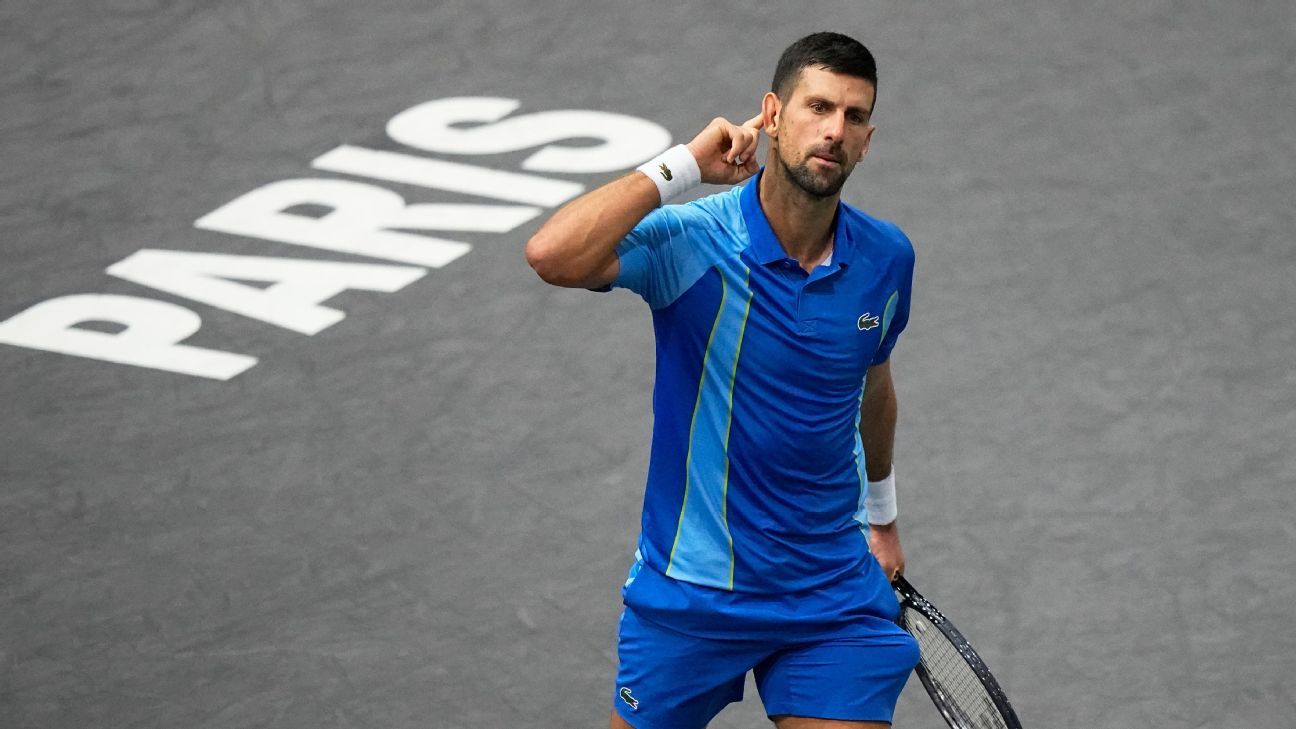Is The WNBA A Platform For Social Commentary Or A Sporting League?

Table of Contents
The WNBA's History of Social Activism
The WNBA, since its inception in 1996, has witnessed players using their platforms to advocate for various social causes. While not always as overt or widespread as in recent years, a tradition of social justice advocacy has always existed within the league.
Early Examples of Activism
Early examples of activism within the WNBA, though perhaps less publicized than today, laid the groundwork for the league's current role.
- Lisa Leslie's activism, particularly her outspokenness against racial injustice, served as an early example of players using their voices.
- Other players, though less documented, also engaged in various forms of social activism, often focusing on local community initiatives.
These early actions, while perhaps not as widely amplified as today due to the limitations of social media and broader media coverage, nonetheless established a precedent for future generations of WNBA players.
The Rise of Modern Social Commentary
The past decade has seen an undeniable surge in social activism within the WNBA. This increase is largely attributed to several factors: the rise of social media, providing players with a direct line to fans and a global audience; heightened media attention on social justice issues; and the growing empowerment of female athletes to use their platforms effectively.
- Breanna Stewart's work with various charities and her outspoken advocacy for equality demonstrates the contemporary impact of WNBA players.
- Sue Bird's long-standing commitment to social justice initiatives, including LGBTQ+ rights advocacy, exemplifies the sustained commitment of many players.
- The collective action of players during the 2020 season, in response to police brutality and racial injustice, significantly amplified the league's social commentary.
This increased activism has transformed the WNBA into a powerful force in broader social justice conversations.
The WNBA as a Platform for Social Change
The WNBA's unique position in the sporting world allows it to amplify voices often unheard in mainstream sports.
Amplifying Marginalized Voices
The league has become a crucial platform for advocacy around a range of crucial social justice issues.
- Many players openly support LGBTQ+ rights, creating visibility and fostering inclusivity within the sport and beyond.
- The fight for racial justice has been central to the WNBA's activism, with players consistently using their platforms to call for systemic change and police reform.
- The ongoing struggle for women's rights and gender equality is deeply intertwined with the league's identity, making it a natural arena for advocacy.
While precise data on the direct impact of these campaigns is hard to quantify, anecdotal evidence and increased media attention suggest a positive contribution to raising awareness and fostering dialogue.
Impact on Viewership and Sponsorships
The effect of the WNBA's social activism on its viewership and sponsorship is complex and multifaceted.
- Some argue that the league's outspoken stance has attracted a new generation of socially conscious fans, leading to increased viewership and engagement.
- Conversely, there are concerns that certain social commentary could alienate some viewers who may disagree with the players' political stances.
- Sponsorship deals might also be affected, with some corporations potentially hesitant to align themselves with controversial positions. However, many socially responsible businesses are actively seeking partnerships with organizations that align with their values.
Balancing Athletic Performance with Social Commentary
Balancing athletic performance with social activism presents inherent challenges.
- Concerns exist regarding potential distractions from training and game performance, though anecdotal evidence suggests that players generally manage both effectively.
- The possibility of facing backlash from fans or sponsors opposed to certain social causes is a real consideration.
- However, many athletes feel that speaking out is an integral part of their identities and believe it enhances their credibility and connects them more deeply with fans.
The Counter-Argument: Maintaining Focus on the Sport
While the WNBA's social activism is widely praised, some argue that it may detract from the league's primary purpose: the sport itself.
Concerns about Distraction
Critics express concerns that excessive social activism could distract players from their athletic pursuits, potentially impacting their performance.
- There are concerns that focusing on social issues might divert attention from training and competition, although there is limited evidence to support this.
- The potential for internal conflict within teams due to differing political views is also a concern.
Maintaining a Professional Image
Maintaining a professional image while engaging in outspoken social commentary requires careful navigation.
- The league must strive to strike a balance between expressing strong opinions and maintaining a level of professionalism to avoid alienating potential sponsors or fans.
- This requires effective communication and strategic messaging to ensure the message is conveyed clearly and effectively.
Alternative Avenues for Social Activism
Some suggest that players might consider alternative avenues for social activism that minimize potential distractions.
- Engaging in charitable work outside of the playing season.
- Using endorsements and partnerships to promote causes they believe in.
- Participating in advocacy work off the court.
Conclusion
The WNBA's role as a platform for social commentary is a multifaceted issue. Its history demonstrates a long-standing commitment to social justice, culminating in the powerful and widespread activism seen in recent years. While there are legitimate concerns about maintaining focus on the sport and potential alienating factors, the league's activism has demonstrably raised awareness of important issues and amplified marginalized voices. Whether this activism enhances or detracts from its identity as a sporting league is a complex question with no easy answer. It arguably enhances its relevance and appeal to a significant segment of the population while potentially alienating others. Ultimately, the WNBA's success lies in finding a sustainable balance between athletic excellence and its commitment to social justice.
What is your opinion on the WNBA's role as a platform for social commentary? Does its activism enhance or detract from the league's appeal? Share your thoughts in the comments below. Further research on "WNBA social activism," "WNBA player activism," and "WNBA social justice" will provide deeper insights into this fascinating and evolving dynamic.

Featured Posts
-
 Michael Morales A Real Deal Knockout Artist Ufc Vegas 106
May 19, 2025
Michael Morales A Real Deal Knockout Artist Ufc Vegas 106
May 19, 2025 -
 Ftc Shifts Focus To Defense In Meta Monopoly Trial
May 19, 2025
Ftc Shifts Focus To Defense In Meta Monopoly Trial
May 19, 2025 -
 Ermineia Tis A Stasis Ton Xairetismon Mia Bythistiki Matia Stin Pisti
May 19, 2025
Ermineia Tis A Stasis Ton Xairetismon Mia Bythistiki Matia Stin Pisti
May 19, 2025 -
 Czy Eurowizja 2024 Jest Zagrozona Dla Justyny Steczkowskiej
May 19, 2025
Czy Eurowizja 2024 Jest Zagrozona Dla Justyny Steczkowskiej
May 19, 2025 -
 Muere Manuel Orantes Leyenda Del Tenis Y Campeon Del Masters 1000 De Hamburgo
May 19, 2025
Muere Manuel Orantes Leyenda Del Tenis Y Campeon Del Masters 1000 De Hamburgo
May 19, 2025
